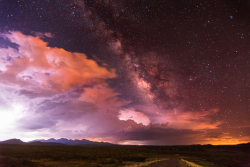nubbsgalore: known informally as asperatus clouds, this atmospheric phenomenon gets its name from the latin aspero, which roman poets used to describe the sea as it was roughened by the cold north wind. though the cause of their formation remains unknow

nubbsgalore: known informally as asperatus clouds, this atmospheric phenomenon gets its name from the latin aspero, which roman poets used to describe the sea as it was roughened by the cold north wind. though the cause of their formation remains unknow

nubbsgalore: known informally as asperatus clouds, this atmospheric phenomenon gets its name from the latin aspero, which roman poets used to describe the sea as it was roughened by the cold north wind. though the cause of their formation remains unknow

nubbsgalore: known informally as asperatus clouds, this atmospheric phenomenon gets its name from the latin aspero, which roman poets used to describe the sea as it was roughened by the cold north wind. though the cause of their formation remains unknow

nubbsgalore: known informally as asperatus clouds, this atmospheric phenomenon gets its name from the latin aspero, which roman poets used to describe the sea as it was roughened by the cold north wind. though the cause of their formation remains unknow

nubbsgalore: known informally as asperatus clouds, this atmospheric phenomenon gets its name from the latin aspero, which roman poets used to describe the sea as it was roughened by the cold north wind. though the cause of their formation remains unknow

nubbsgalore: known informally as asperatus clouds, this atmospheric phenomenon gets its name from the latin aspero, which roman poets used to describe the sea as it was roughened by the cold north wind. though the cause of their formation remains unknow











